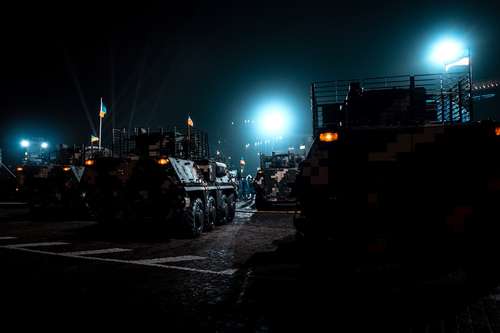Sudan's famine is worsening. At the same time, peace talks aimed at resolving the country’s civil conflict continue to fail. This humanitarian disaster, now widely regarded as the largest in the world, has caused millions of Sudanese to face famine for the first time in generations.
The country currently grapples with the combined effects of decades-long economic mismanagement, wars, and a climate crisis that has caused droughts to intensify. However, the immediate cause of the current famine is the use of starvation as a weapon in the ongoing conflict between the Sudanese Armed Forces (SAF) and the Rapid Support Forces (RSF).
Why the Arsenal of Starvation?
The Sudan war erupted last year in April and has since affected communities across the nation. The Sudanese Armed Forces (SAF), led by General Abdel Fattah al-Burhan, have engaged in fierce battles against the Rapid Support Forces (RSF). The RSF is a paramilitary group under the command of General Mohamed Hamdan Dagolo, also known as "Hemedti."
The resulting conflict has caused widespread destruction, with both sides employing brutal tactics, pushing the civilian population into starvation. In regions like Gezira and Sennar, the RSF rampaged through farmlands, pillaging and destroying vital infrastructure. Hospitals and schools were also vandalized, and the once fertile lands along the Blue Nile have been rendered barren.
In Darfur, the situation is even more severe. In its southwestern city of el-Fasher, the only area in the region still controlled by the SAF, famine conditions have been officially declared. Even worse—residents of el-Fasher do not have access to essential supplies, as aid can only trickle in through insecure routes that cross battle lines.
Peace Talks Fail to Deliver Relief
Despite the serious situation, recent peace talks in Geneva have failed to yield significant progress. The talks assembled by the United States and Saudi Arabia sought to bring the warring generals to negotiate and agree on a ceasefire which would open humanitarian corridors. However, the SAF refused to attend, with the force's head demanding that the RSF withdraw from civilian areas before any discussions can occur.
Without the participation of the SAF, the talks were reduced to proximity negotiations and phone calls, resulting in minimal outcomes. Although a small convoy of 15 UN aid trucks was earlier allowed to cross the border from Chad into Darfur, this represents only a fraction of the assistance needed.
International Powers Making Resolution Difficult
The ongoing conflict is not just a domestic issue but has drawn in regional powers with competing interests. The RSF is widely believed to receive support from the United Arab Emirates (UAE), while Saudi Arabia and Egypt back the Sudanese Armed Forces (SAF). This has complicated peace efforts even further, as both sides battle for influence over the future of Sudan.
Meanwhile, the humanitarian disaster continues with over half of Sudan's 45 million people in urgent need of relief aid. According to experts, the famine could claim millions of lives before the end of the year without full-scale aid efforts arriving.




